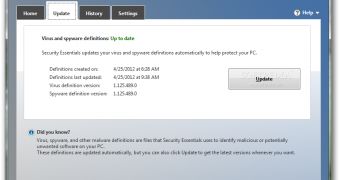

Defender/MSE have always brought up the rear in AV tests. MSRT is only updated once per month, during Patch Tuesday, which is going away with the release of Windows 10.įor whatever reason, Microsoft just has not been able to get its antimalware products going. Defender and MSE have never had a good reputation or track record for malware detection because they use the same malware definitions.ĭefender was just anti-spyware until Windows 8, when it was expanded to offer antivirus protection as well. Microsoft has three products: Windows Defender, which comes with Windows 7 and 8 Microsoft Security Essentials (MSE), which you can download and the Malicious Software Removal Tool (MSRT), which is focused on specific and common forms of malware. His final conclusion: "The freeware Microsoft module is much too feeble in the detection of malware." The solution was awarded 0 points by the testers in terms of its protection function, and it achieved only 11 out of 18 possible points." The test revealed, however, that this is not to be recommended.


As Erik Heyland, director of the AV Test Testing Labs, noted, "An economical option for protecting a corporate network is the use of the endpoint module, bundled in the Microsoft Management Suite System Center 2012. The rest did no worse than 95%, with one exception: Microsoft Security Essentials detected only 73% on the real-world testing and 87% of the malware on the real-time test. Overall, 11 products were tested, and six of them – Bitdefender, F-Secure, Trend Micro, Symantec, and two offerings from Kaspersky – achieved a 100% detection rate.


 0 kommentar(er)
0 kommentar(er)
